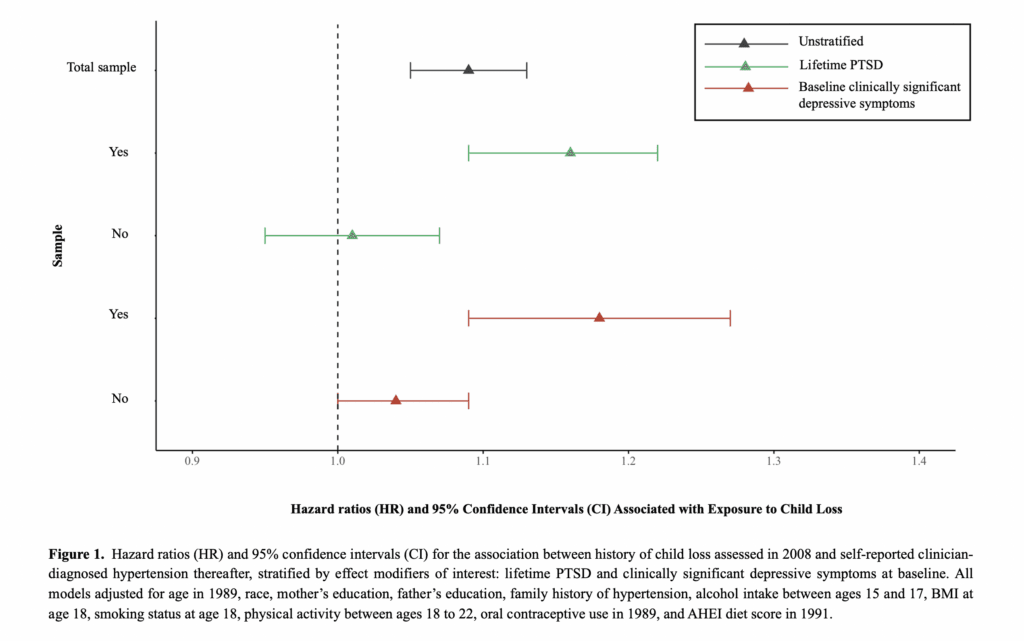Women’s Health
Child bereavement and maternal incident hypertension in the Nurses’ Health Study II Karolina Edlund* Karolina Edlund Alexandra Hillcoat Shaili Jha Jae Hee Kang Karestan Koenen Christy Denckla
Background: Cardiovascular disease remains the leading cause of morbidity and mortality among women, and prevention has focused on risk factors such as hypertension. While trauma is a known predictor of women’s cardiovascular health, the impacts of bereavement-related trauma are underexplored. As 12% of US adults experience child loss by age 50 and bereaved mothers bear greater risk of health sequelae than bereaved fathers, pathways linking child loss and hypertension among women warrant investigation.
Methods: Using data from 31,326 women in the Nurses’ Health Study II (Mage in 1989 = 34.53 years [SD = 4.65], 94% White) with a median follow-up of 11 years (IQR = 2), we ran Cox proportional hazards models to explore associations between history of child loss assessed in 2008 and self-reported clinician-diagnosed hypertension thereafter, adjusting for sociodemographic covariates. We excluded individuals if they reported hypertension or myocardial infarction/stroke, used antihypertensives, died, or were lost to follow-up prior to 2008. To explore effect measure modification by psychological sequalae, we fit models stratified by lifetime posttraumatic stress disorder (PTSD) and baseline clinically significant depressive symptoms.
Results: The prevalence of incident hypertension, lifetime PTSD, and clinically significant depressive symptoms was 18%, 10%, and 17%, respectively. Women with a history of child loss exhibited 1.09 (95% CI = 1.05, 1.13) times the adjusted hazard of incident hypertension compared to non-bereaved women. Estimates were elevated among women with a history of PTSD (HR = 1.16 [1.09, 1.22]) or clinically significant depressive symptoms (HR = 1.18 [1.09, 1.27]) relative to those without (HRno PTSD = 1.01 [0.95, 1.07]; HRno depression = 1.04 [1.00, 1.09]).
Conclusion: Women bereaved of a child are at moderately increased risk of incident hypertension. Further investigation is needed into the psychological sequelae of child loss as prevention targets.

